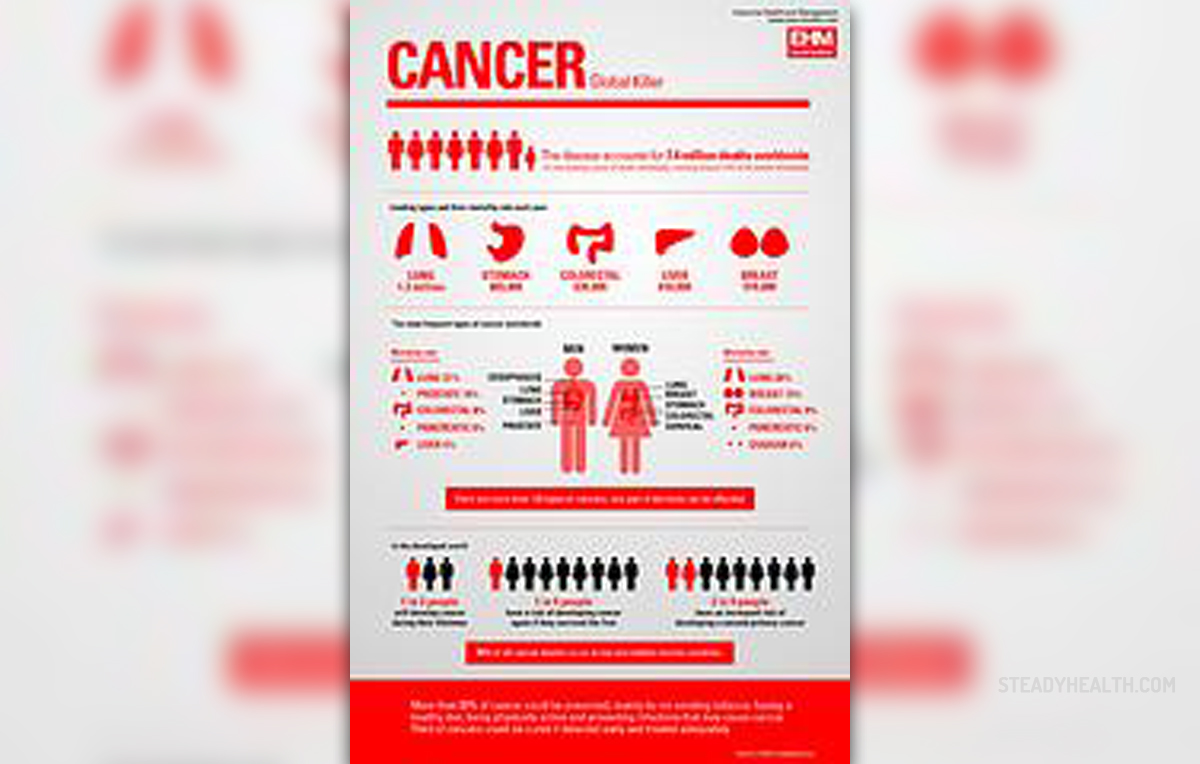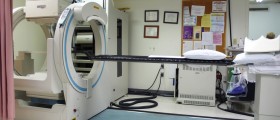
When the cells of the esophagus, the tube that connects the stomach to the oral cavity, become malignant or cancerous, a person is considered to be suffering from esophageal cancer.
There are many histological types of esophageal cancer but squamous cell carcinoma and adenocarcinoma are seen in more than 90% of all patients diagnosed with this type of malignancy. According to available data, squamous cell carcinoma occurs in up to 95% of all esophageal cancer patients all around the world.
The situation is slightly different in the United States where adenocarcinoma occurs in between 50 and 80% cases esophageal cancer. Squamous cell carcinoma can develop from cells of every part of the esophagus but is mainly seen in those cells located in the upper part of the esophagus. On the other hand, adenocarcinoma develops in the glandular cells which can be, among other sites, seen at the junction of the esophagus and stomach.
Malignancy of the Esophagus
Problems, like difficulty or pain, with swallowing (or dysphagia) is an often reported problem and symptom of practically all patients suffering from esophageal cancer. Apart from difficulty swallowing, pain in the throat or while swallowing occurs often as well but there are other symptoms which may develop, such as vomiting, spontaneous weight loss, choking on food often, and even a hoarse voice.
Anyone experiencing these symptoms would be advised to seek medical care. After describing your symptoms in detail, and answering your doctor's questions, they will move forward with the process of making a diagnosis. Apart from an initial physical exam, you can expect an ultrasound of the es
Biopsy is a powerful tool for confirming the presence of and diagnosing cancer of the esophagus. When a tumor is detected, the doctor will decide what the best possible way of treating the cancer is after developing a thorough treatment plan.
If the tumor of the esophagus is small and localized, surgery is considered to be the best treatment approach. The main goal of surgery is to cure the cancer by removing it. In case the tumor rapidly grows in size and affects nearby tissues, surgery is no longer an option. Such patients undergo systemic or palliative treatment.
Chemotherapy and radiation therapy are used to prevent and postpone further growth of the tumor. A lot of patients require the combination of these two cancer treatment methods in order for the treatment to achieve the best possible results. With chemotherapy and radiation therapy the tumor can even become smaller in size and operable. The prognosis of esophageal cancer is rarely good. It largely depends on the stage of the disease and certain other factors.
Third Stage of Esophageal Cancer
Stage III of every type of cancer is considered to be a later stage but not terminal. Patients diagnosed with stage III esophageal cancer have cancer that has spread through the wall of the esophagus to the lymph nodes and even invaded close structures. Medical experts say that the majority of patients who are diagnosed with esophageal cancer have a stage III cancer. This stage of the disease is also known as locally advanced.
There are plenty reasons for receiving treatment for cancer. The goal of cancer treatment is to alleviate the symptoms via local control of the cancer, improve the chances of cure and prolong the survival of the patient. However, the doctor needs to properly balance the benefit of cancer treatment with potential risks of receiving treatment. The stage of the cancer will influence the way of treatment as well. Many of the newer treatment options are developed in clinical trials and almost every patient can participate in a trial. However, before taking part in any of the trials it is vital for the patient to talk to the physician about all the risks and benefits.
A patient with stage III esophageal cancer will most often need more than one therapeutic approach and a team of doctors. The team usually includes a medical oncologist, a radiation oncologist, a surgeon, a medical gastroenterologist and a nutritionist.
Chemotherapy and radiation therapy before surgery and chemotherapy and radiation therapy without surgery are the two main and most significant treatment options for patients diagnosed with stage III cancer of the esophagus. Surgery is almost never used alone. The American Society of Radiology recommends radiation therapy and chemotherapy without surgery for patients with stage III esophageal cancer. However, it is believed nowadays that if these two treatments are administrated before surgery the chances of cure are improved. This theory is still a part of clinical trials.
Cancer Progression
Improved patient participation in clinical trials has contributed significantly to the overall progress the medical community has made in treating patients with esophageal cancer. It is of great importance that patients take part in these trials in order for the treatments to become even better and more effective in the future. At the moment, more than a few areas of active research have the goal of improving the treatment for cancer of the esophagus. Supportive care is one of the areas and it is designed to prevent and control any side effects of both cancer and treatment.
New adjuvant regimens or treatments after surgery are also looked into. The combination of radiation therapy and chemotherapy has been shown to have a lot of positive effect on patients after surgery and medical experts are always looking to further improve treatment options for patients. A new multi-drug chemotherapy treatment is being developed as well. Treatment before the surgery or new neoadjuvant regimens are additionally one of the areas which scientists are currently researching.

















Your thoughts on this
Loading...